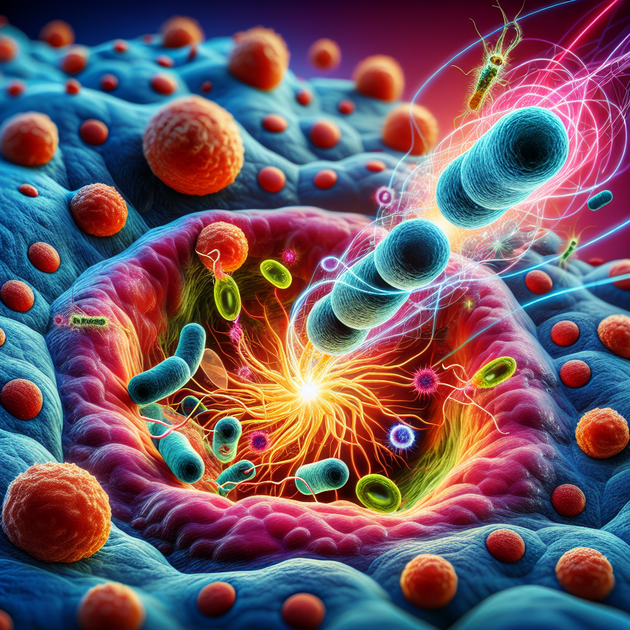Have you ever imagined using bacteria—the same kind that can give you food poisoning—to actually fight cancer? It sounds wild, but that’s exactly what scientists are doing with engineered salmonella. In a recent breakthrough study, researchers tweaked these infamous bacteria to self-destruct inside tumors. The result? They kicked off powerful immune responses and shrank colon cancer in mice. This could be a huge step towards using “living medicines” against some of our deadliest cancers.
What Is Engineered Salmonella and How Does It Work?
Engineered salmonella is basically your ordinary salmonella bacteria given a high-tech makeover. While regular salmonella can wreak havoc on your stomach, scientists have figured out how to reprogram it so it specifically targets tumors—leaving healthy cells alone.
Here’s how it works:
- The bacteria are injected into the body (in this case, mice with colon cancer).
- They naturally seek out low-oxygen environments—like the insides of solid tumors.
- Once inside the tumor, these smart bacteria are programmed to self-destruct.
- When they break apart, they release special signals—kind of like waving a red flag to attract the immune system.
- The immune system rushes in and attacks not just the dead bacteria but also the nearby cancer cells.
It’s like sending tiny commandos into enemy territory with instructions to blow their cover at just the right moment. The explosion grabs everyone’s attention—in this case, your own immune cells—which then rally together for an all-out attack on the tumor.
Why Use Bacteria as “Living Medicines”?
You might wonder—why go through all this trouble with bacteria when we have other treatments like chemotherapy or radiation? Well, those treatments can struggle to target only cancer cells without damaging healthy ones. Engineered salmonella offers something different:
- Targeted Attack: The bacteria home in on tumors naturally.
- Sparking Immune Hubs: Their self-destruction draws immune cells right where they’re needed most.
- Less Collateral Damage: Healthy tissue is mostly left alone.
Plus, as our understanding of genetics and biotech grows, scientists can keep adding custom features to these bacterial “living medicines”—like safety switches or boosters for even stronger immune responses.
The Study: Shrinking Colon Cancer in Mice
Let’s talk results! In a set of experiments with mice that had colon cancer tumors:
– Mice treated with engineered salmonella showed significant tumor shrinkage compared to untreated mice.
– The immune response was much stronger where the bacteria had been deployed.
– No major side effects were reported—the modified bacteria were programmed not to survive outside tumor environments.
One researcher described seeing “immune hubs” forming right inside the tumor—basically mini-headquarters where immune cells gathered after getting alerted by the dying bacteria.
An Anecdote from Behind the Scenes
I remember chatting with a lab tech who worked on similar bacterial therapies. She told me about one mouse who’d initially been non-responsive to traditional treatments. After receiving an injection of engineered salmonella (and some very careful monitoring), within days there was visible shrinking around her tumor sites under imaging scans—and more importantly, a spike in activity from her T-cells (the immune system’s elite soldiers). Even she was shocked by how fast things changed once those “bio-bombs” went off inside.
Could Engineered Salmonella Be Used for Human Cancer?
We’re not quite ready for prime time yet—it’ll take years of safety tests before anyone tries this on people. But if early results hold up:
- This could offer hope for hard-to-treat cancers.
- Bacterial therapies might work when other treatments fail.
- The method could be adapted for different types of tumors—not just colon cancer.
Of course, there are still hurdles ahead. Scientists need to make sure these living medicines don’t cause dangerous infections or spread beyond their targets. But if they crack those challenges? We might soon see a future where your doctor prescribes not just pills—but precision bugs trained to hunt down your cancer.
What do you think about using “bad” bacteria as allies against disease? Would you try a treatment like this if it were available?

Leave a Reply